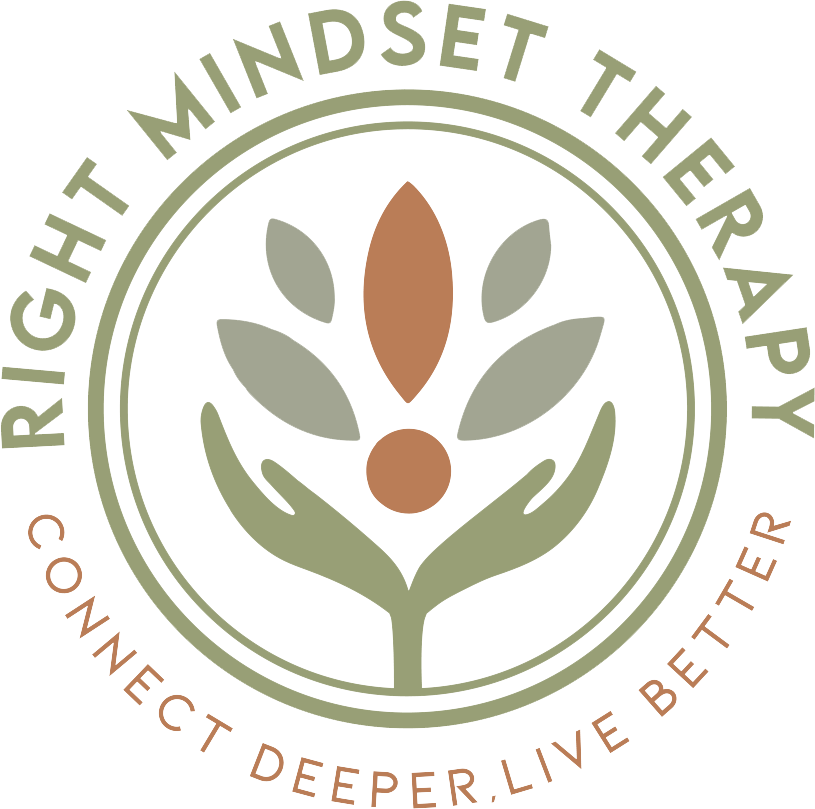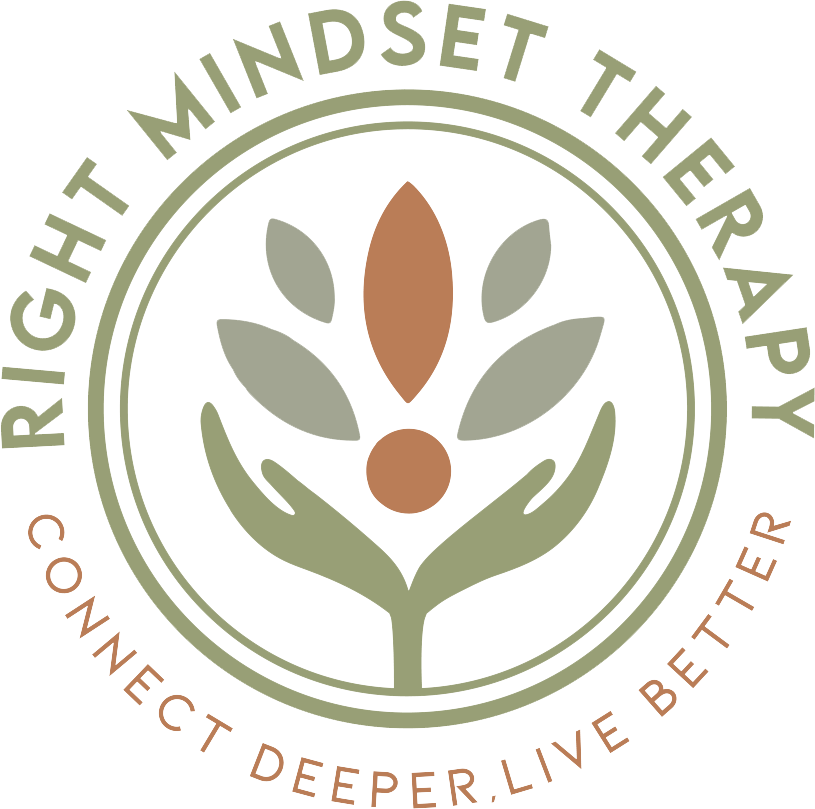The Art of Boundary Setting: Protecting Your Emotional Well-being
Understanding and Emphasizing the Importance of Boundaries
The Necessity of Boundary Setting in Modern Life
Imagine your life as a bustling city. Cars zoom by, people come and go, and the energy crackles with possibility. But amidst the vibrant chaos, do you have a quiet park bench, a cozy cafe corner, a haven that's distinctly yours? That's the essence of boundaries: invisible fences for your emotional, mental, and physical well-being. In today's fast-paced world, setting these boundaries isn't a luxury, it's a necessity.
Why Are Boundaries Crucial?
Think of boundaries like the lines on a map, guiding you where you are and where you end. They define your personal space, protecting your precious energy from being constantly drained by others' needs or expectations. They're not walls to isolate you, but rather fences that let in the good while filtering out what doesn't serve you. With healthy boundaries, you cultivate a sense of self-respect, knowing your worth and protecting your emotional resilience.
Types of Boundaries: Physical, Emotional, and Relational
Boundaries come in many forms, each safeguarding a different aspect of your life. Physical boundaries are the most tangible, like your personal space or saying "no" to unwelcome touch. Emotional boundaries shield your inner world, allowing you to express and process feelings without being overwhelmed by others' emotions. Relational boundaries, on the other hand, define how you interact with others, setting expectations and limitations in friendships, family ties, and romantic relationships.
Identifying Your Boundaries: Self-Reflection and Awareness
But how do you know what your boundaries are? It's a journey of self-discovery, a dance between listening to your needs and acknowledging the needs of others. Pay attention to what drains your energy, what makes you feel uncomfortable, and what compromises your sense of self. Notice situations where you say "yes" out of obligation, not genuine desire. These are clues that your boundaries need some TLC.
Challenges in Boundary Setting: Overcoming Fear and Guilt
Setting boundaries can be daunting. We might fear rejection, upsetting others, or appearing selfish. Guilt can creep in, making us feel responsible for others' reactions. Remember, though, that healthy boundaries are a sign of self-care, not self-absorption. By taking care of yourself, you become a better friend, partner, and family member.
Boundaries in Personal Relationships: Fostering Respect and Individuality
Healthy boundaries are the cornerstones of thriving relationships. They allow space for individual growth and mutual respect. In families, boundaries can mean setting limits on unsolicited advice or respecting privacy. In friendships, they might involve saying "no" to draining demands or expressing honest needs. In romantic relationships, boundaries create a secure space for vulnerability and open communication.
This is just the beginning of our exploration of boundaries. Next, we'll explore the practicalities of setting and communicating boundaries, along with the incredible benefits they offer for your well-being, relationships, and overall quality of life. Boundaries are not about building walls, but about cultivating a life that feels authentic, empowered, and deeply fulfilling.
Implementing and Benefiting from Boundaries
Setting and Communicating Boundaries Effectively
Now that we've explored the importance of boundaries, let's dive into the hands-on how-to. Setting and communicating boundaries effectively requires clear, assertive communication, a touch of empathy, and a dash of courage. Here are some key steps:
- Be clear and concise: Instead of vague hints, use "I" statements to express your needs directly. For example, say "I feel overwhelmed when you call late because it disrupts my sleep schedule" instead of "You shouldn't call so late."
- Choose the right timing: Pick a calm moment when you both have time to focus on the conversation. Avoid bringing up boundaries during heated arguments or stressful situations.
- Emphasize respect: Explain your boundaries while acknowledging the other person's feelings. Let them know you understand their perspective but need to prioritize your well-being.
- Offer alternatives: If you're saying "no" to something, suggest alternative solutions or compromises that could work for both of you. Show them you're willing to collaborate to find a solution.
- Be prepared for pushback: Setting boundaries can be met with resistance, especially from those used to your old patterns. Stay calm, reiterate your needs, and be firm but respectful. Remember, consistency is key.
Benefits of Boundary Setting: From Stress Reduction to Enhanced Relationships
The rewards of setting healthy boundaries are manifold and far-reaching. Here are just a few benefits you can expect to enjoy:
- Reduced stress and anxiety: By protecting your energy and setting limits, you prevent yourself from feeling overwhelmed and burnt out.
- Improved self-esteem: When you prioritize your needs and respect your boundaries, you cultivate a sense of self-worth and confidence.
- Stronger relationships: Healthy boundaries foster mutual respect and understanding in your relationships, leading to deeper connections and less conflict.
- Better work-life balance: Setting boundaries in your professional life helps you disconnect from work after hours, allowing you to recharge and prioritize personal time.
- Emotional resilience: Strong boundaries equip you to deal with challenging situations and difficult emotions with greater strength and clarity.
Boundary Setting in Professional Life and Digital Wellness
In today's digital age, boundaries are crucial for maintaining a healthy work-life balance and protecting your mental well-being. Here are some tips for setting boundaries in these areas:
- Set clear working hours: Stick to your schedule and avoid checking work emails or calls outside of those hours.
- Limit your availability on social media: Be mindful of how much time you spend scrolling and interacting online. Schedule breaks and set boundaries around notifications.
- Learn to say no to extra work: Don't be afraid to politely decline additional tasks if they would overload your schedule. Prioritize your well-being and avoid overworking yourself.
- Create a designated workspace: Having a separate space for work helps you mentally switch off when you're finished for the day.
Learning to Say No: The Power of Assertiveness
Saying "no" can be daunting, especially for people pleasers. But remember, saying "no" to others doesn't make you selfish, it makes you responsible for your own well-being. Practice using phrases like "I appreciate the offer, but I'm not able to take that on right now" or "I need to prioritize my own commitments at the moment." Be firm, polite, and clear in your communication.
Respecting Others' Boundaries: A Two-Way Street
Just as we deserve to have our boundaries respected, we also need to respect the boundaries of others. Pay attention to nonverbal cues, listen actively, and be mindful of your own behavior. Ask for clarification if you're unsure about someone's boundaries, and be willing to adjust your actions accordingly. Remember, healthy boundaries are a two-way street.
Evolving Boundaries: Adapting with Personal Growth
Our boundaries are not static; they grow and adapt as we do. As we mature and change, our needs and priorities evolve, and so too should our boundaries. Be open to reassessing your boundaries over time and adjusting them as needed. This ongoing process of self-discovery helps you stay true to yourself and cultivate a life that feels authentic and fulfilling.
FAQs Section
Here are some common questions people have about setting boundaries:
Q: What if I feel guilty about setting boundaries?
A: Remember, setting boundaries is not about being selfish, it's about self-care. You can't pour from an empty cup. By taking care of yourself, you become a better friend, partner, and family member. And remember, guilt often comes from the fear of disappointing others. But ultimately, respecting your own needs can lead to stronger, healthier relationships in the long run.
Q: How do I deal with people who resist my boundaries?
A: Setting boundaries can be met with resistance, especially from those used to your old patterns. Be prepared for this, and stay calm and consistent. Reiterate your needs firmly but respectfully, and avoid getting into arguments or giving in to pressure. If someone repeatedly disrespects your boundaries, it might be a sign of a deeper issue in the relationship that needs to be addressed.
Q: What if I'm afraid of losing people by setting boundaries?
A: It's natural to fear losing people when you change your behavior. But remember, true friends and family members will respect your needs and want you to be happy. If someone pushes you away because of your boundaries, it might be a sign that they weren't a healthy presence in your life to begin with. Trust that setting boundaries will attract people who respect and value you for who you are.
Q: How do I know if my boundaries are too rigid?
A: Healthy boundaries are about finding a balance between your needs and the needs of others. It's important to be flexible and willing to compromise in certain situations. However, if you find yourself constantly bending over backwards to please others or ignoring your own needs, it's a sign that your boundaries might be too loose. Pay attention to your gut feeling and don't be afraid to assert your needs when necessary.
Q: Can setting boundaries help me overcome anxiety or depression?
A: Setting boundaries can be a powerful tool for managing anxiety and depression. By reducing stress and protecting your energy, you create a more stable emotional environment for yourself. Additionally, the confidence and self-respect that come from setting boundaries can help boost your mood and overall well-being.
Setting boundaries is a journey, not a destination. Be patient with yourself, celebrate your progress, and don't be afraid to reach out if you need help or support. Click the button below, and I would be happy to go over your unique challenges you are facing right now. Building healthy boundaries takes time and effort, but the rewards are immeasurable. Take charge of your well-being, one empowered "no" at a time!

Karen Herbert, LCSW
Hello, I'm Karen
I hope this article was helpful to you. If you would like to chat more about the challenges you are going through, Book a free consultation and I would be happy to meet you :)
OUR RECENT POST:


eXPERIENCE Right Mindset tHERAPY dIFFERENCE.
Discover a holistic approach to well-being at Right Mindset, PLLC.
Contact Information
Right Mindset, PLLC
Phone: (704) 327-2127
Location: Virtual in Huntersville, NC 28078
Site Navigation
HOURS OF OPERATION:
- Mon - Fri
- -
- Saturday
- -
- Sunday
- Closed
All Rights Reserved | Right Mindset, PLLC | Notice of Privacy Practices | Website Designed by: Thriving Mind Marketing


